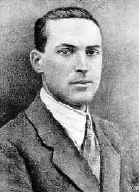| Constructivist Instruction Theoretical
foundation Contributions
|
The Contributions of Lev Vygotsky: Building a Scaffold to learning Vygotsky is a Russian philosopher and educational psychologist. He felt that cognitive development was directly related and based on social development. What children learn and how they think are derived from the culture around them: "children begin learning from the world around them, their social world, which is the source of all their concepts, ideas, facts, skills, and attitudesĄour personal psychological processes begin as social processes, patterned by our culture. " An adult plerceives things much differently from the way a child does, but this difference decreases as children gradually translate their social views into personal, psychological ones. Vygotsky referred to the difference between these two levels of cognitive functioning (adult/expert and child/novice) as the zone of proximal development. He felt that teacher could provide good instruction by finding out where each child was in his or her development and building on the child's experiences. He called this building process "scaffolding." |
 Theoretical
foundation-Vygotsky
Theoretical
foundation-Vygotsky